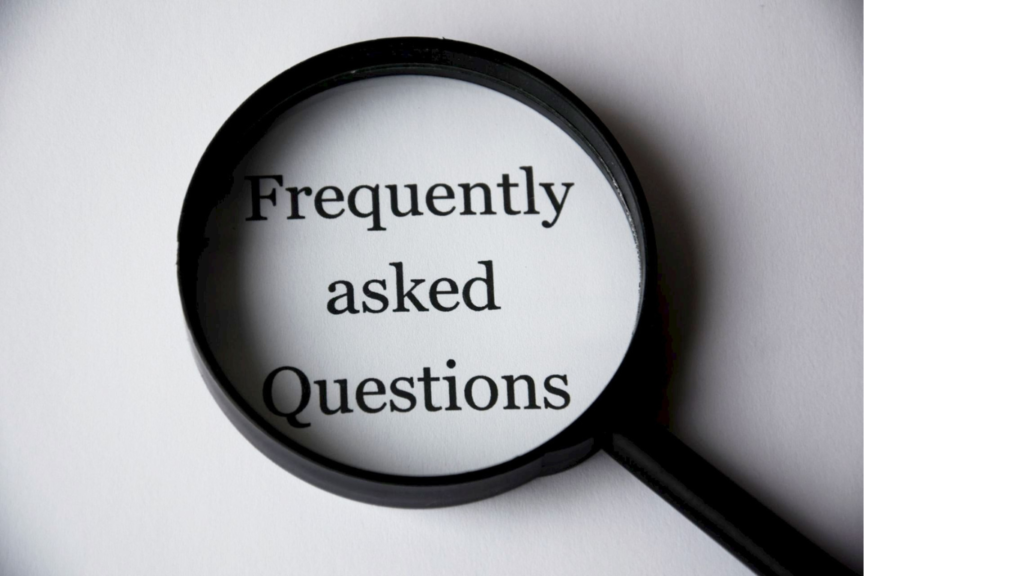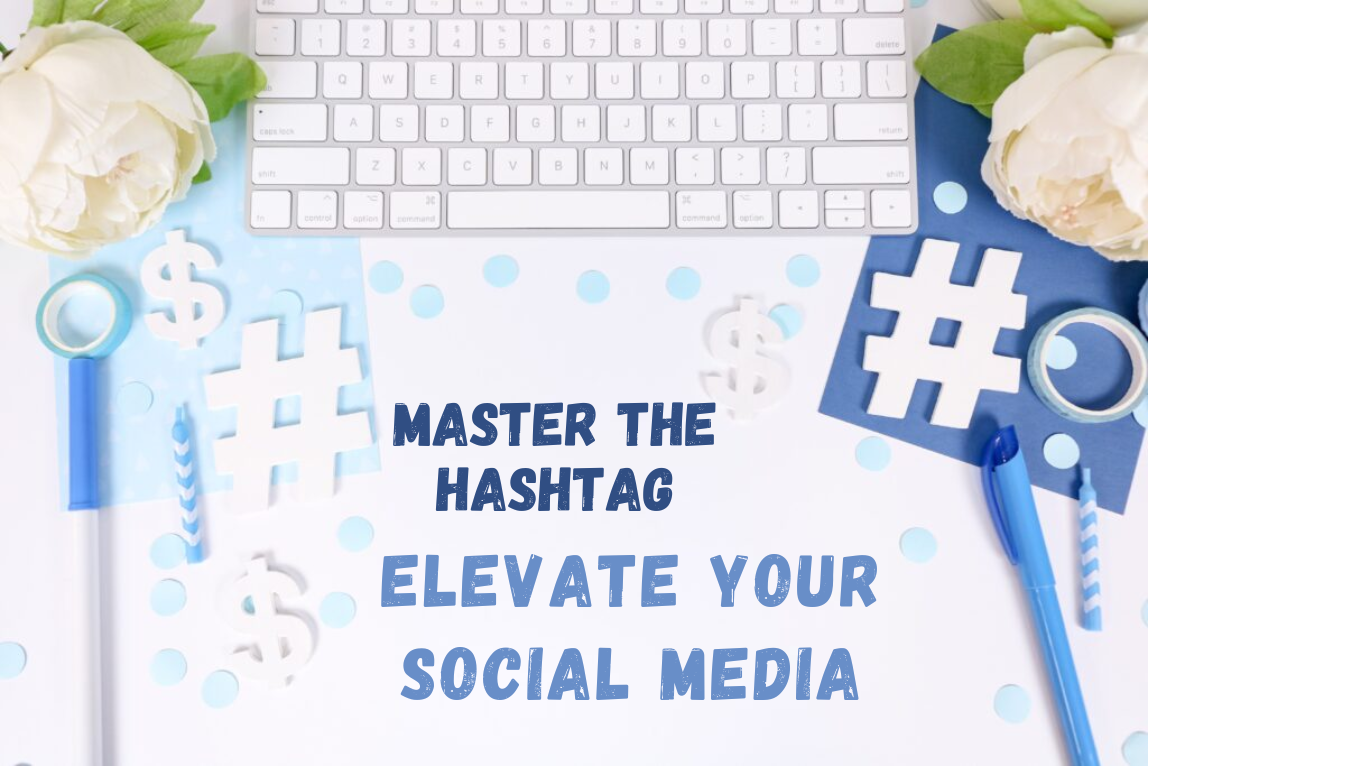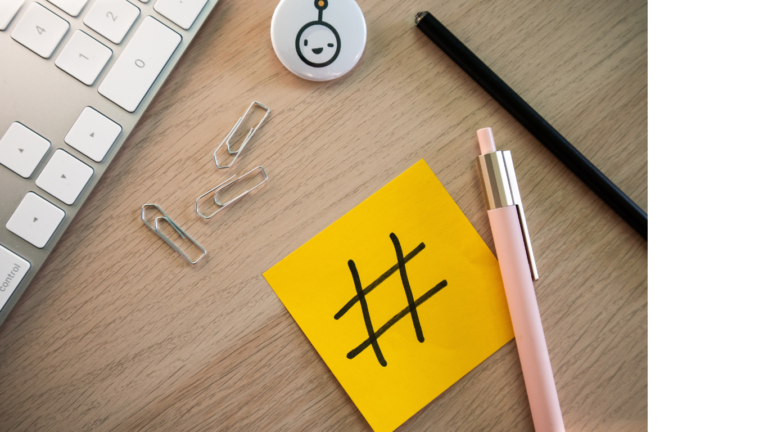What Are Hashtags
Hashtags have revolutionized social media communication, allowing users to categorize content, express opinions, and connect with others on platforms such as Twitter, Instagram, and LinkedIn. They consist of a combination of letters, numbers, and/or emojis, preceded by the pound sign (#), creating a clickable link that leads to a collection of other posts and tweets that also use the same hashtag. Businesses, brands, and organizations have also adopted hashtags as an essential marketing tool to improve their social media presence and drive traffic to their websites. Overall, hashtags have become an integral part of social media, enabling users to share information and engage with each other online in new and powerful ways.

Unlock the secrets of mastering hashtags with these insightful books available on Amazon! Dive deep into strategies, best practices, and the art of leveraging hashtags for impactful social media presence. 📚 Explore these must-read hashtag books and elevate your social media game today!
Why Use Hashtags
Hashtags have become an integral part of social media communication, allowing users to categorize their content and connect with a wider audience. Hashtags consist of a combination of letters, numbers, and/or emojis preceded by the pound sign (#), creating a clickable link that leads to a collection of other posts and tweets that also use the same hashtag. Hashtags are used for various purposes, such as expressing opinions, promoting events, starting social justice movements, sharing food-related content, and more.
Here are some examples of hashtags mentioned in the paragraph:
- #ThrowbackThursday or #TBT — used for sharing old photos or memories on Thursdays.
- #MotivationMonday — used for sharing motivational quotes or messages on Mondays.
- #BlackLivesMatter — used for social justice movements and activism.
- #Foodie — used for sharing food-related content.
- #Travelgram — used for sharing travel-related photos and experiences.
Brands have also started using hashtags to build brand awareness, promote their products and services, encourage user-generated content, and track the impact of their social media campaigns. Moreover, influencers leverage hashtags to increase their reach and grow their audience. By creating their own branded hashtags, businesses can track the impact of their social media campaigns and encourage user-generated content. Overall, hashtags are a powerful tool that enables users to share information and connect with each other in new and innovative ways.
How to Use Hashtags
When it comes to using hashtags, it’s important to do so strategically and with restraint. Using too many hashtags can make a post look spammy and difficult to read, which can turn off potential followers and damage your brand’s image. To maximize the effectiveness of your hashtags, it’s recommended to use 1–3 hashtags per post that are relevant to your content and your target audience. Additionally, it’s important to research relevant hashtags before using them, to ensure that they are popular and will help your content reach a wider audience. Another effective strategy is to create your own branded hashtags that are unique to your business or personal brand. Branded hashtags can help increase brand awareness and encourage user-generated content related to your brand, which can help attract more followers and build a strong online presence.
Using Hashtags Offline
Hashtags have expanded beyond their online origins and become popular in offline settings as well. Advertisers and marketers have incorporated hashtags into their offline advertising campaigns, such as on billboards, print ads, and television commercials. This strategy aims to encourage engagement and conversation online, as the hashtag serves as a bridge between the offline and online worlds. By using hashtags in their advertising campaigns, businesses and marketers can build brand awareness, increase reach, and connect with their target audience in a more meaningful way.

Furthermore, using hashtags offline has become a prevalent trend in events, such as concerts, festivals, and sports games. Attendees are encouraged to use a particular hashtag to share their experiences, photos, and videos with others, creating a sense of community and engagement around the event. This not only enhances the attendees’ experience but also amplifies the event’s exposure on social media, leading to higher engagement and visibility.
Discover the transformative power of hashtags with ‘Hashtag Authentic: Finding creativity and building a community on Instagram and beyond‘ available on Amazon. This enlightening read is packed with invaluable insights, strategies, and real-world examples that will empower you to harness hashtags effectively for dynamic social media engagement. Don’t miss the opportunity to elevate your hashtag game and amplify your online presence. 📖 Get your copy now!
The use of hashtags has extended beyond their online roots, and they have become a common strategy in offline settings as well. They serve as a powerful tool for businesses and marketers to build brand awareness, connect with their target audience, and encourage online engagement. Hashtags have also become a prevalent trend in events, fostering a sense of community and engagement among attendees and amplifying the event’s exposure on social media.

In conclusion, hashtags have become an essential component of social media communication, allowing users to categorize content, express opinions, and connect with others. They consist of a combination of letters, numbers, and/or emojis, preceded by the pound sign (#), creating a clickable link that leads to a collection of other posts and tweets that also use the same hashtag. Businesses and organizations have leveraged hashtags to build brand awareness, promote products and services, and increase engagement on social media. Moreover, hashtags are a valuable tool for social media influencers who use them to grow their audience and increase their reach. Hashtags have also evolved to include branded hashtags that are unique to a business or a marketing campaign. By creating their own branded hashtags, companies can encourage user-generated content and track the impact of their social media campaigns. Overall, hashtags have transformed social media communication, enabling users to share information and engage with each other in new and innovative ways.
Dive deeper into the art of hashtag mastery with our detailed guide: ‘Mastering How to Use Hashtags Effectively‘. Uncover advanced techniques and strategies to optimize your social media posts for enhanced visibility and engagement.
Frequently Asked Questions (FAQs) about Hashtags

1. What are hashtags?
- Hashtags are labels used on social media platforms that help categorize content, making it easily discoverable. They are created by using the pound sign (#) followed by a word or phrase.
2. Why should I use hashtags in my posts?
- Using hashtags increases the visibility of your posts, helping them reach a broader audience beyond your followers. They are essential tools for enhancing social media engagement and interaction.
3. How many hashtags should I use per post?
- It’s advisable to use 1-3 relevant hashtags per post. Overusing hashtags can make a post look cluttered and less engaging.
4. Can hashtags be used in offline marketing?
- Yes, hashtags have been integrated into offline marketing strategies, such as in print ads and billboards, to bridge offline campaigns with online conversations and engagement.
5. Where can I learn more about effective hashtag strategies?
- Explore more about the dynamic world of hashtags in our exclusive articles. Learn intricate strategies and effective hashtag practices in ‘Mastering How to Use Hashtags Effectively,’ and uncover a treasure trove of hashtag examples to elevate your social media approach in ‘Unlock the Power of Social Media: The Ultimate Guide to Hashtag Examples.‘ These in-depth articles are designed to equip you with the knowledge and tools necessary to harness the full power of hashtags in your social media endeavors.
6. Can hashtags be used on all social media platforms?
- Hashtags are commonly used on platforms like Instagram, Twitter, and LinkedIn. However, their effectiveness varies across different social media platforms.
7. What are some popular hashtag trends?
- Trends vary based on time and the platform used. Some popular generic hashtags include #ThrowbackThursday (#TBT), #MotivationMonday, and #Foodie.
8. How do businesses benefit from using hashtags?
- Businesses use hashtags to increase their post visibility, promote products or events, and engage with consumers. Hashtags also help in tracking the performance of marketing campaigns.
Unlock the full potential of your social media content with our ultimate guide: ‘Unlock the Power of Social Media: The Ultimate Guide to Hashtag Examples‘. Explore a rich array of hashtag examples and learn how to use them to supercharge your social media strategy.
Elevate your social media success with our curated strategies: ‘5 Proven Hashtag Strategies for Skyrocketing Social Media Success‘. Discover five powerful hashtag strategies that have been proven to skyrocket engagement and visibility on social media platforms.
Unlock the secrets to financial success with 'Rich Dad Poor Dad'. Learn the money lessons the wealthy teach their kids that you won't find in traditional education. Start your journey to financial independence today — click here to get your copy!




